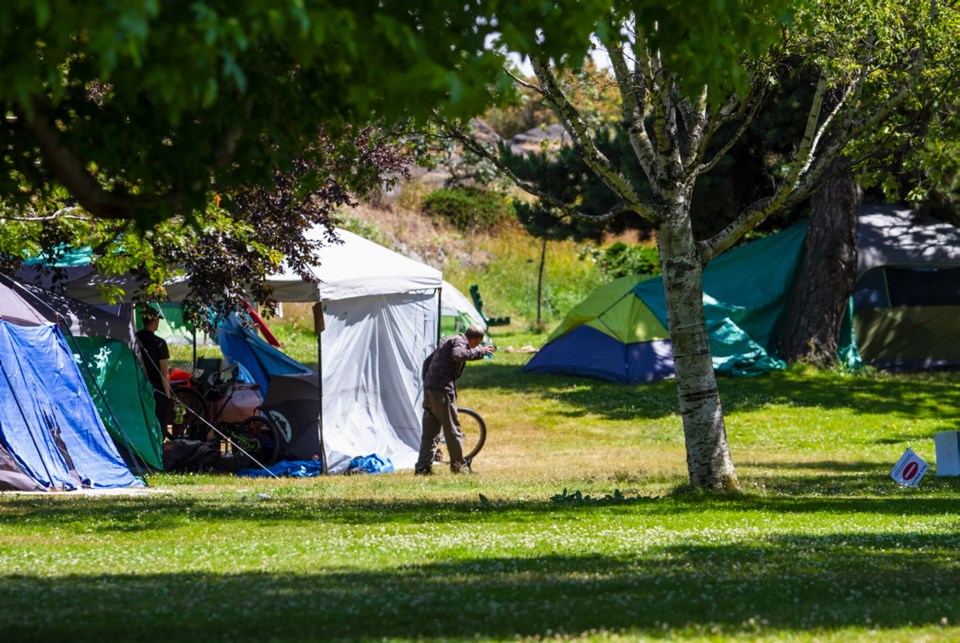People without homes who have lived in the capital region for a year or more should be given higher priority for housing than those who recently moved here, says Victoria Mayor Lisa Helps.
In a motion going to committee of the whole on Thursday, Helps and three city councillors recommend that a one-year residency requirement be added to the list of criteria that’s used when assessing people for housing.
The current process administered by B.C. Housing, Island Health and the Capital Regional District already gives priority to those over the age of 55, the chronically homeless and Indigenous people who are disproportionately represented in homelessness counts, the motion says.
Helps and councillors Jeremy Loveday, Charlayne Thornton-Joe and Marianne Alto take no issue with the existing criteria, although they think the age range should be broadened.
But they argue that a new residency requirement is justified given research showing the high percentage of people without homes who have been here for a year or more.
The 2020 Point in Time Homeless Count and Housing Needs Survey released last week found that least 1,523 people were experiencing homelessness in Greater Victoria on the night of March 11.
Of the total, 84 per cent had been in the region for a year or more, while 12 per cent said they had been here less than a year and four per cent didn’t know or did not provide an answer.
“There is a common misconception that individuals experiencing homelessness in Greater Victoria are not local to the region and have moved to the community recently,” states the report, released by the Capital Regional District in partnership with the Community Social Planning Council and the Greater Victoria Coalition to End Homelessness. “Survey participants shared important information to counter this assumption.”
The report found that 42 per cent of respondents had lived in the region five years or longer, while 22 per cent said they have been here their entire lives.
Helps said the report debunks the notion that large numbers of people without homes are moving here from across the country.
But she still thinks it’s important to send a signal that the region intends to look after its community members first, especially since other municipalities already have residency requirements.
“There’s no reason for us in the Capital Regional District not to also have a residency requirement,” she said.
“People are free to move back and forth across the country. It is a free country and mobility is a human right. At the same time, there are not enough resources to take care of the people who are already here.”
Diana Gibson, chief executive officer of the Community Social Planning Council, said she’s glad to see the Point in Time Count data helping inform policy.
But she said that prioritizing housing by choosing between different groups of vulnerable people “really shows the bigger challenge, which is that we just don’t have enough social purpose-built housing to address the need.”
“We know in the study it showed that there were youth who were homeless. It showed that there were families, and families with children. So do we prioritize seniors or a wider age group? Do we prioritize chronic homelessness? Do we prioritize people who’ve been living in the region? So that is an approach that really does highlight for us the need.”
Julian Daly, chief executive officer of the Our Place Society, said it’s reasonable to give priority to those who have suffered from homelessness longer than others given its negative impacts on a person’s mental and physical health.
“That said — and I think it’s really important to say this — everyone needs shelter,” he said. “It shouldn’t be that those that have been here less than a year shouldn’t get shelter of some sort or other. And I don’t mean a tent in Beacon Hill Park. I mean a cot or a mat in a night shelter to begin with or a space in transitional housing.
“Everyone should have access to that at the very least.”
B.C. Housing said in a statement that it’s aware of the motion and, should it pass, welcomes the opportunity to discuss it.



